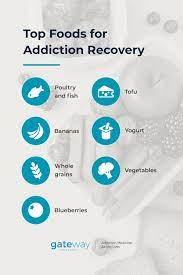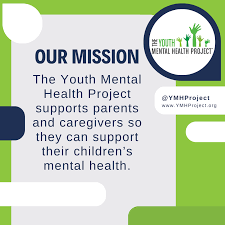The Impact of Addiction on Individuals and Society
Addiction is a complex and devastating disease that affects millions of individuals worldwide, with far-reaching consequences for both the person struggling with addiction and society as a whole. Whether it’s substance abuse, such as drugs or alcohol, or behavioral addictions like gambling or gaming, the effects of addiction can be profound and long-lasting.
Effects on Individuals
For individuals grappling with addiction, the impact can be overwhelming. Addiction can lead to physical health problems, mental health disorders, strained relationships, financial difficulties, legal issues, and a loss of control over one’s life. The constant craving for the addictive substance or behavior can consume a person’s thoughts and actions, leading to a cycle of dependency that is difficult to break.
Moreover, addiction often coexists with other mental health conditions such as depression or anxiety, further complicating the individual’s well-being. The stigma surrounding addiction can also prevent individuals from seeking help or support, exacerbating their struggles in silence.
Effects on Society
On a broader scale, addiction has significant implications for society as well. The economic burden of addiction is substantial, encompassing healthcare costs, lost productivity in the workforce, criminal justice expenses related to drug-related crimes, and social welfare programs to support those affected by addiction.
Furthermore, addiction contributes to social issues such as homelessness, domestic violence, child neglect or abuse, and an increased strain on healthcare systems. The ripple effects of addiction extend beyond the individual user to impact families, communities, and society at large.
Conclusion
In conclusion, addressing the impact of addiction requires a multifaceted approach that combines prevention efforts, access to treatment and recovery services, destigmatization of addiction as a disease rather than a moral failing, and ongoing support for individuals in recovery. By recognizing the far-reaching consequences of addiction on both individuals and society and working together to combat this epidemic through education,
prevention,
and compassion,
we can create a healthier,
more supportive environment for all.
Seven Essential Tips for Overcoming Addiction: Strategies for a Healthier, Substance-Free Life
- Seek professional help and support
- Identify triggers and develop coping strategies
- Build a strong support system of friends and family
- Practice self-care and stress management techniques
- Engage in healthy activities to occupy your time
- Set realistic goals for recovery and celebrate progress
- Avoid situations or people that may encourage addictive behavior
Seek professional help and support
Seeking professional help and support is crucial for individuals struggling with addiction. Professional therapists, counselors, and addiction specialists can provide personalized guidance, therapy, and treatment plans tailored to address the specific needs of each individual. Additionally, support groups and community resources offer a network of understanding individuals who can provide empathy, encouragement, and accountability on the road to recovery. By reaching out for professional help and building a strong support system, individuals can take the first step towards overcoming addiction and reclaiming control over their lives.
Identify triggers and develop coping strategies
Identifying triggers and developing coping strategies are crucial steps in managing addiction. By recognizing the situations, emotions, or thoughts that lead to cravings or relapse, individuals can proactively address these triggers and implement effective coping mechanisms. This may involve seeking support from a therapist or support group, practicing mindfulness and stress-reduction techniques, engaging in healthy activities like exercise or hobbies, or developing a strong social support network. By understanding and managing triggers while building resilience through coping strategies, individuals can navigate the challenges of addiction recovery with greater success and stability.
Build a strong support system of friends and family
Building a strong support system of friends and family is crucial in overcoming addiction. Having a network of people who care about your well-being and are there to offer encouragement, understanding, and guidance can make a significant difference in your recovery journey. Friends and family can provide emotional support, accountability, and practical help in times of need. Their presence can remind you that you are not alone in your struggle and that there are people rooting for your success. By leaning on your support system during challenging moments and celebrating milestones together, you can navigate the ups and downs of addiction recovery with greater resilience and hope.
Practice self-care and stress management techniques
Practicing self-care and stress management techniques is crucial for individuals struggling with addiction. Taking care of oneself physically, emotionally, and mentally can help reduce the triggers that lead to addictive behaviors. Engaging in activities that promote relaxation, such as meditation, exercise, or spending time in nature, can provide a healthy outlet for stress and anxiety. By prioritizing self-care and learning effective stress management strategies, individuals can better cope with the challenges of addiction recovery and improve their overall well-being.
Engage in healthy activities to occupy your time
Engaging in healthy activities to occupy your time can be a powerful strategy in managing addiction. By filling your schedule with positive and fulfilling pursuits such as exercise, hobbies, socializing, or volunteering, you not only distract yourself from cravings and triggers but also nurture your overall well-being. These activities can provide a sense of purpose, boost self-esteem, and create a supportive environment that promotes recovery. Additionally, incorporating healthy habits into your daily routine can help rewire your brain’s reward system away from addictive behaviors towards more constructive and beneficial choices.
Set realistic goals for recovery and celebrate progress
Setting realistic goals for recovery is essential in the journey to overcoming addiction. By establishing achievable milestones, individuals can track their progress and stay motivated throughout the recovery process. Celebrating even small victories along the way can provide a sense of accomplishment and reinforce positive behavior changes. Recognizing and acknowledging progress, no matter how small, can boost self-esteem and confidence, making it easier to stay committed to long-term recovery goals. This approach helps individuals build momentum and resilience as they work towards a healthier, addiction-free life.
Avoid situations or people that may encourage addictive behavior
To effectively combat addiction, it is crucial to steer clear of environments or individuals that may trigger or enable addictive behaviors. By proactively avoiding situations that could lead to relapse or exacerbate addictive tendencies, individuals can better safeguard their recovery journey and focus on healthier choices and habits. Surrounding oneself with supportive and understanding individuals while distancing from influences that promote addictive behavior plays a pivotal role in maintaining sobriety and fostering long-term well-being.



